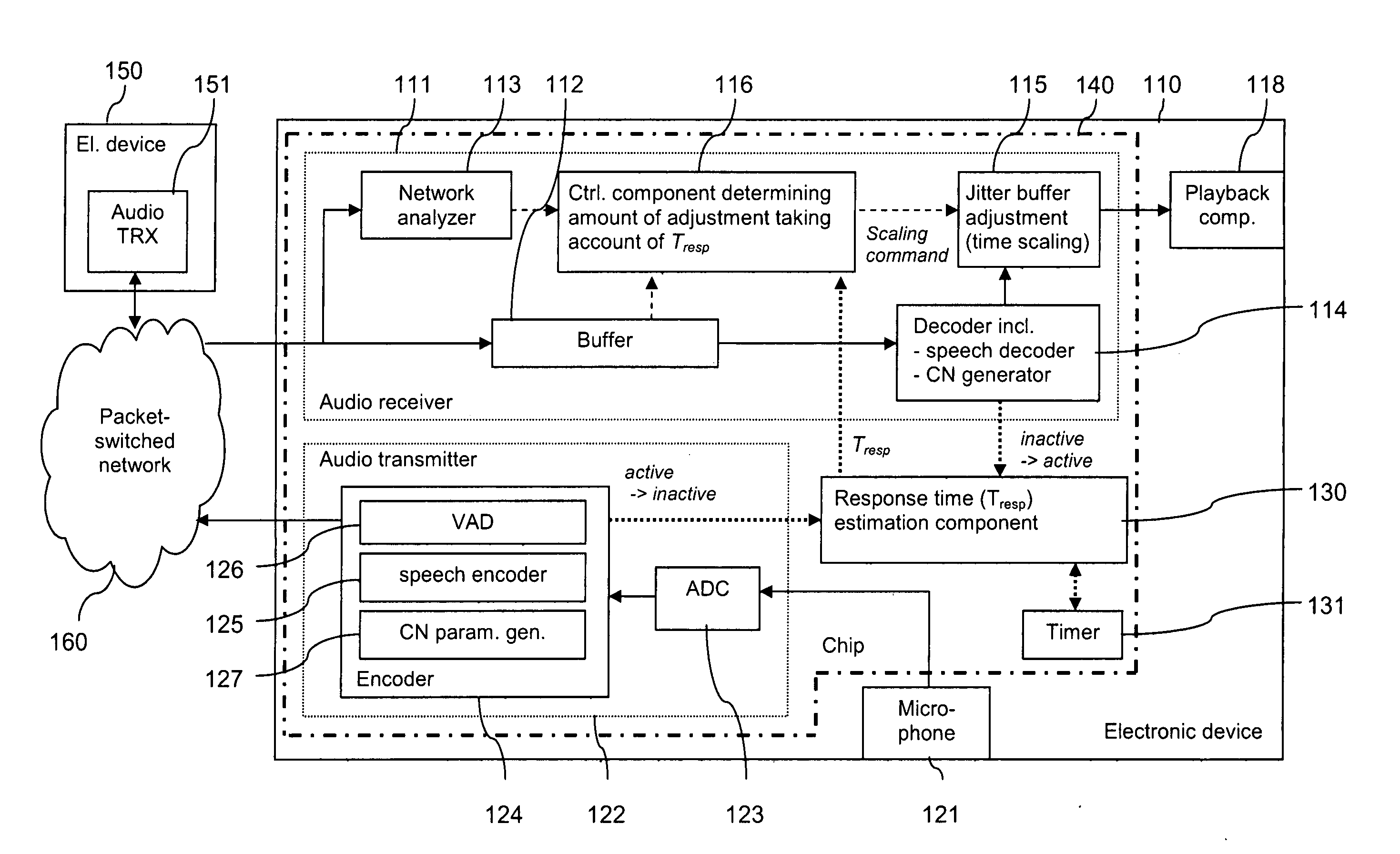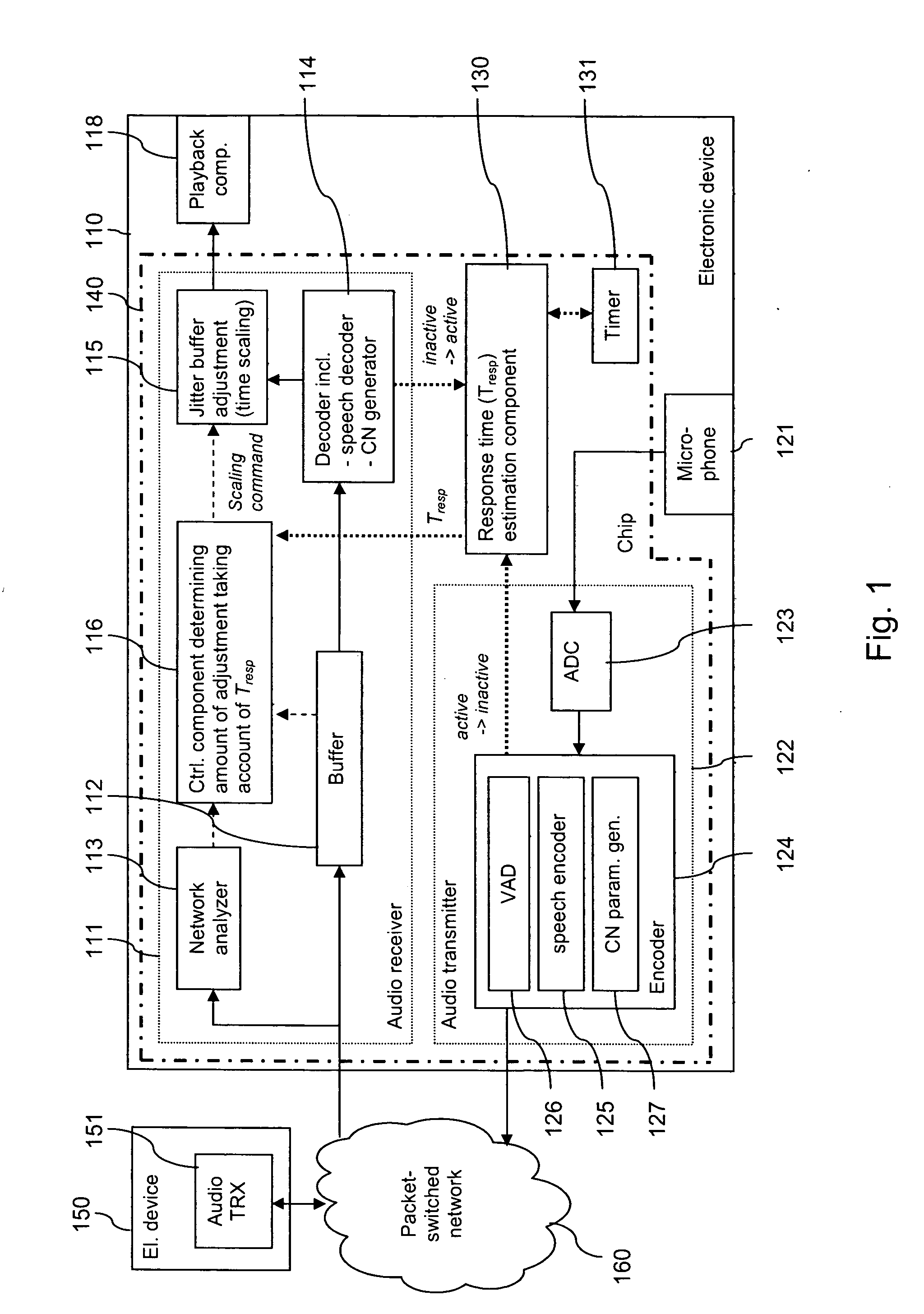Jitter buffer adjustment
a buffer adjustment and buffer technology, applied in data switching networks, instruments, frequency-division multiplexes, etc., can solve problems such as reducing sound quality, packets and included audio frames are considered lost, and network jitter is a major hurdle, so as to achieve faster and more accurate information
- Summary
- Abstract
- Description
- Claims
- Application Information
AI Technical Summary
Benefits of technology
Problems solved by technology
Method used
Image
Examples
Embodiment Construction
[0043]FIG. 1 is a schematic block diagram of an exemplary system, which enables an adjustment of an adaptive jitter buffering based on an estimated response time in accordance with an embodiment of the invention.
[0044]The system comprises a first electronic device 110, a second electronic device 150 and a packet switched communication network 160 interconnecting both devices 110, 150. The packet switched communication network 160 can be or comprise for example the Internet.
[0045]Electronic device 110 comprises an audio receiver 111, a playback component 118 linked to the output of the audio receiver 111, an audio transmitter 122, a microphone 121 linked to the input of the audio transmitter 122, and a response time (Tresp) estimation component 130, which is linked to both, audio receiver 111 and audio transmitter 122. The Tresp estimation component 130 is further connected to a timer 131. An interface of the device 110 to the packet switched communication network 160 (not shown) is ...
PUM
 Login to View More
Login to View More Abstract
Description
Claims
Application Information
 Login to View More
Login to View More - R&D
- Intellectual Property
- Life Sciences
- Materials
- Tech Scout
- Unparalleled Data Quality
- Higher Quality Content
- 60% Fewer Hallucinations
Browse by: Latest US Patents, China's latest patents, Technical Efficacy Thesaurus, Application Domain, Technology Topic, Popular Technical Reports.
© 2025 PatSnap. All rights reserved.Legal|Privacy policy|Modern Slavery Act Transparency Statement|Sitemap|About US| Contact US: help@patsnap.com



